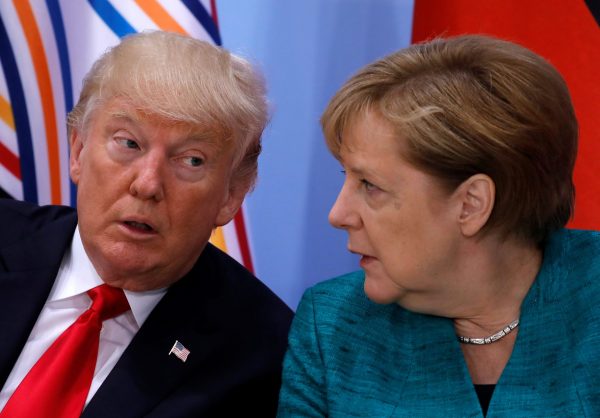Its support for the Paris climate accord was no longer universal. Its support for globalisation, openness and increased integration was under threat, both outside and inside the security zone.
But the G20 did its job. It pushed-back on Trump’s protectionist policies. It chastised his back-tracking on climate change. Although it failed to get it formalised in the communique, the G20 pressured China to be more proactive on North Korea and pressured Russia on its suspected role in the US election. The United States, the ‘indispensable nation’ seemed a tad more dispensable, as Trump fast-tracked his country away from its global leadership role.
The G20 now plays a critical role in global governance that is often overlooked. It is a role which is hard to quantify and not amenable to media sound bites, communiques or dot points in action plans. That role is to hold the world’s major economies to account. It provides a sanity check. A road block. If a country wants to deviate from broadly agreed rules and norms in the international system, it can expect relentless questioning and opposition from global partners.
This peer pressure stopped the United States from having the G20 abandon its anti-protectionist pledge. The G20 committed to ‘continue its fight against protectionism’, although it ‘recognised the role of legitimate trade defence instruments’ to appease the Trump administration.
On climate, the communique read like the G19 rather than G20. It noted the US decision to withdraw from Paris but stressed that ‘the leaders of the other G20 members state that the Paris Agreement is irreversible…reiterating the importance of fulfilling the UNFCCC [United Nations Framework Convention on Climate Change] commitment’. And though they were absent from the communique, there were clear messages to China that the global community expects it to do more on North Korea and to Russia, when it comes to cyber warfare, that it is expected to do much less.
But while the G20 stood its ground on key issues, it didn’t gain much ground either.
The World Trade Organization shows that trade restricting measures are growing, up 8.5 per cent in the 12 months to May 2017 alone. The G20’s growth agenda from 2014 is in tatters. The G20 committed to make G20 GDP 2.1 per cent bigger by 2018 relative to International Monetary Fund (IMF) forecasts in October 2013. Instead, global GDP is forecast to fall short of this target by almost 6 per cent. On protection against financial risks, recent research shows that inadequate resourcing for the IMF and regional and bilateral initiatives means that the global community would struggle to provide the same financial support today that was provided during the Asian financial crisis.
To show global economic leadership, the G20 will have to develop multi-year agendas on inclusive growth, trade and financial resilience. These tasks now fall on Argentina, which assumes the G20 presidency in December.
The G20’s growth agenda ends in 2018. If the protestors at Hamburg had any clear message it’s that growth needs to be more inclusive. Limited scope to deal with new macroeconomic shocks in many G20 countries means that equitable growth will be dependent on structural reforms and improvements in the composition of government spending. Global institutions like the IMF and OECD are on notice to demonstrate how the benefits of these reforms will be distributed across the community and address the problems of inequality.
The G20 needs a genuine agenda on trade. For too long it has merely given lip-service for global, plurilateral and bilateral trade initiatives. Its focus on domestic reforms to boost trade in its growth strategy process delivered few tangible reforms. The G20 could add much value in seeking greater consistency between the plethora of global, regional and bilateral trade agreements and developing a framework for how they can be scaled-up into a global, WTO-led agreement.
The G20 needs an agenda to strengthen financial resilience. Encouraging countries to bolster resilience within their own financial systems is important. But ignoring the global financial safety net is a bit like closing down the fire department and asking people not to start fires. The G20 needs to inject more political capital in the push for increased IMF funding through IMF quota and quota formula reform. It needs to formalise guidelines on how global, regional and bilateral components of the safety net will cooperate in a time of crisis.
While Germany’s host year continues until December, all eyes are now on Argentina. Germany struggled to find common ground on which to work with the Trump administration. This will be the critical benchmark against which Argentina’s presidency will be assessed.
Adam Triggs is a research scholar at the Crawford School of Public Policy, ANU. He was formerly a member of the Australian G20 Task Force.

